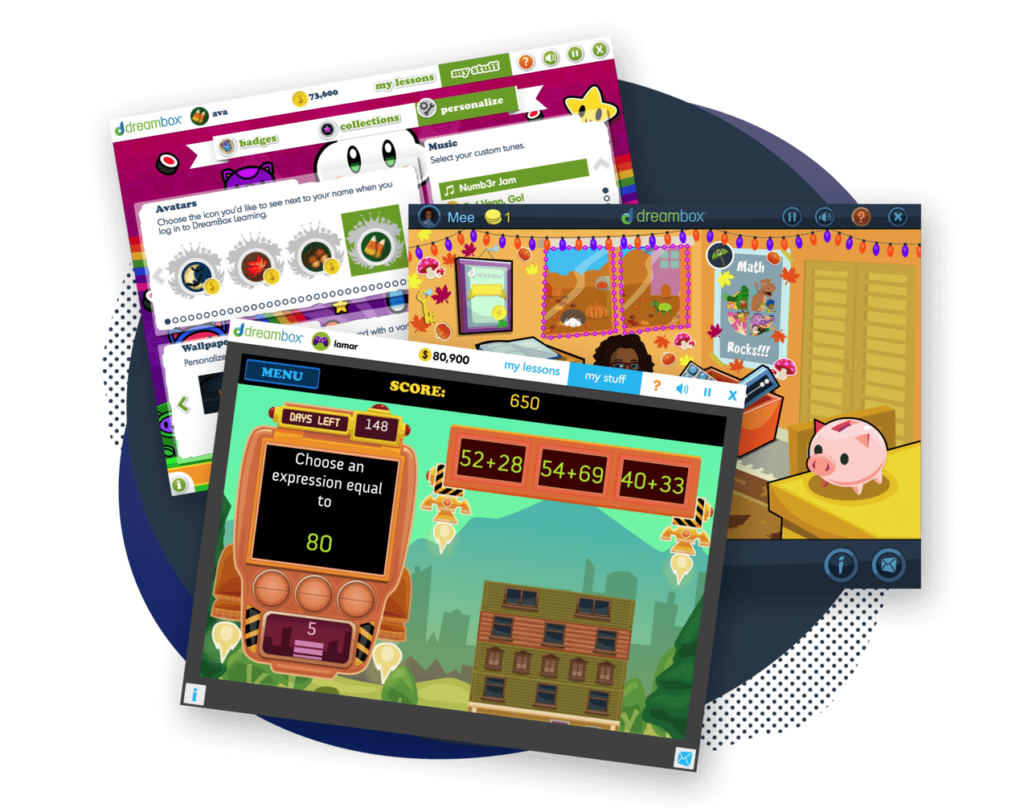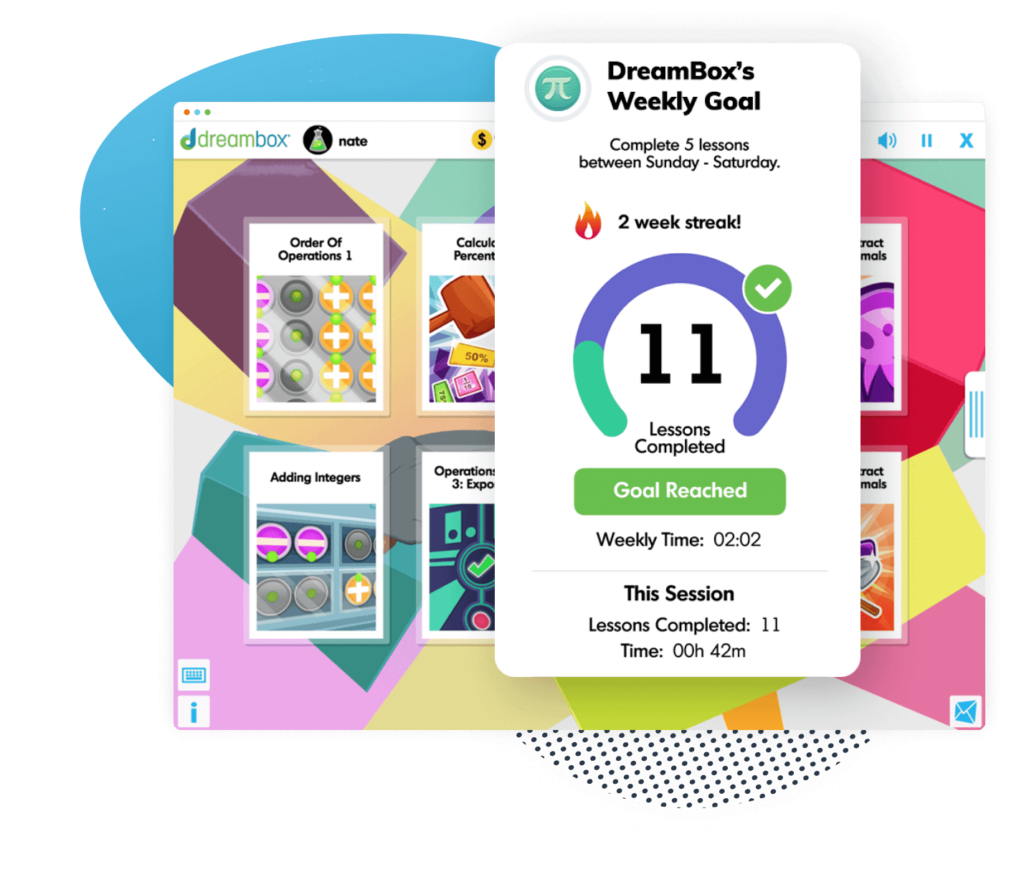What is number sense?
Strong number sense is key to mastering math concepts, and these number sense activities will help your learner develop their skills and confidence.

Author
Katie Wickliff
Published:
Oct 2024
Key takeaways
- • Number sense refers to a group of foundational math skills that allow students to understand numbers and their relationships.
- • Some children have stronger number sense than others, while others need more explicit instruction and practice.
- • You can help your child improve their number sense through a variety of fun activities
What is number sense? Many parents and caregivers are confused by this concept–one that has become a key focus of early mathematics instruction.
For example, when I was a preschool and elementary student in the late 80s and early 90s, the math curriculum placed more emphasis on rote memorization and less on understanding, relating, and connecting numbers. Conversely, my children’s math homework often asks them to solve the problem and explain their thinking.
We now know that strengthening number sense is a vital part of a child’s math development. Children with strong number sense can confidently and flexibly explore numbers and develop efficient strategies to solve problems.
This article covers what number sense is, what strong or weak number sense looks like, and how to help your learner build number sense. We also provide several number sense activities to help your child strengthen this essential skill–while having fun!
Number sense definition
So, what is number sense? Number sense is the ability to understand numbers and their relationships and is the foundation of all math skills. Students with strong number sense move beyond basic, surface level knowledge (i.e. memorization) and achieve mastery of mathematical concepts.
Components of number sense
Several components form number sense. They are:
Counting and cardinality: Understanding counting; being able to count from any number to any number, both forward and backward, and being able to assign value to objects. Mastering cardinality means knowing the actual count or number of items in a set.
Number relationships: Understanding and being able to identify number patterns, place value, and number “families”. For example, a child with a strong understanding of number relationships will understand that if 1+2=3, then 3-2=1.
Quantity and magnitude: Understanding “how many” of something and being able to identify, compare, and estimate different quantities.
Estimation and approximation: Understanding how to reach a “near enough” answer; being able to round answers to specific place values.
Operations and computation: Performing mental math to solve problems; understanding the meanings of operations (addition, subtraction, multiplication, division) and how they relate to each other.
Real-world understanding and application: Being able to connect numbers to real-life situations such as calculating correct change, measuring distance, analyzing data, or telling time.
Table of contents
Access more math practice with DreamBox
Turn math into playtime with DreamBox Math
DREAMBOX MATH
Get started for FREE today!

What does strong number sense look like?
While children develop number sense gradually, you can keep an eye on your child’s growth. Your child might have a solid handle on number sense if they:
- Make number comparisons; knowing that 15 is bigger than 14.
- Use mental math to solve problems or make estimates
- Represent numbers or solve simple operations in more than one way.
- Understand the order of numbers in a list: 1st, 2nd, 3rd, etc.
- Have an awareness of number patterns, including recognizing missing numbers
- Demonstrate competence with age-appropriate mathematical operations (addition, subtraction, multiplication, division)
What does trouble with number sense look like?
Some children have stronger number sense than others, and trouble with one or more aspects of number sense tends to show up early. A child might have a hard time with the concepts outlined above: perhaps they struggle with learning operations like addition and subtraction, or they have trouble grasping concepts like larger or smaller.

The math program that drives results
Get started today!
DreamBox adapts to your child’s level and learning needs, ensuring they are appropriately challenged and get confidence-building wins.
How to help your child build number sense
Children need opportunities to experience numbers and learn that math can be fun. It takes time and practice for kids to build number sense skills, but there are many ways to help. Obviously, number sense activities vary by age and skill level, but here are a few ideas to get you started:
Number Sense Activities
Explore real-life situations using number sense:
- Measure ingredients for a baking recipe. Let your child do the measuring–being able to actually see that ½ is bigger than ¼, for example, strengthens their understanding of fractions.
- Estimate the amount of time it takes to drive to school and compare that to the amount of time it takes to drive to soccer practice. Which takes longer?
- If your child is having 3 friends over to play, and each friend gets 2 cookies, work with your child to determine how many total cookies to serve.
- While online shopping, compare prices of the same item from different retailers. Which store has the item for less?
Encourage critical and flexible thinking. Use beads, beans, or blocks to help your child understand how to take numbers apart in different ways. For example, if your child knows that 3+3 adds up to 6, encourage them to use the manipulatives to help them find other ways to make 6.
Practice counting and grouping objects. Count, sort, organize, and compare high-interest items like stuffed animals, chocolate candies, toy cars, etc.
Focus on a “number of the week”. Help your child create a chart that shows the number in different forms. For example, if the number of the week is 8, your child might write 8, eight, and 8th. Show them what the number means by drawing 8 blue dots on the chart, then 4 red dots/4 blue dots, then 2 red dots/6 blue dots, etc. Look for opportunities to notice groups of 8 all week!
Use interactive games and math apps. DreamBox’s math practice app is a fun way to get your child excited about practicing skills that will increase their confidence and improve their number sense.
FAQs about number sense
Number sense is the ability to understand numbers and their relationships. A person with strong number sense understands what numbers mean and can work with them in a variety of situations.
Number sense is not simply memorization. Number sense moves past surface level skills and allows students to think flexibly and fluidly about numbers.
Number sense is important to a child’s math development because it allows them to view numbers as a type of language: to understand what numbers mean and how they relate to one another.
Take at home math practice to the next level
Empowering parents and educators to make math practice more impactful. Plus, your kids will love it.
